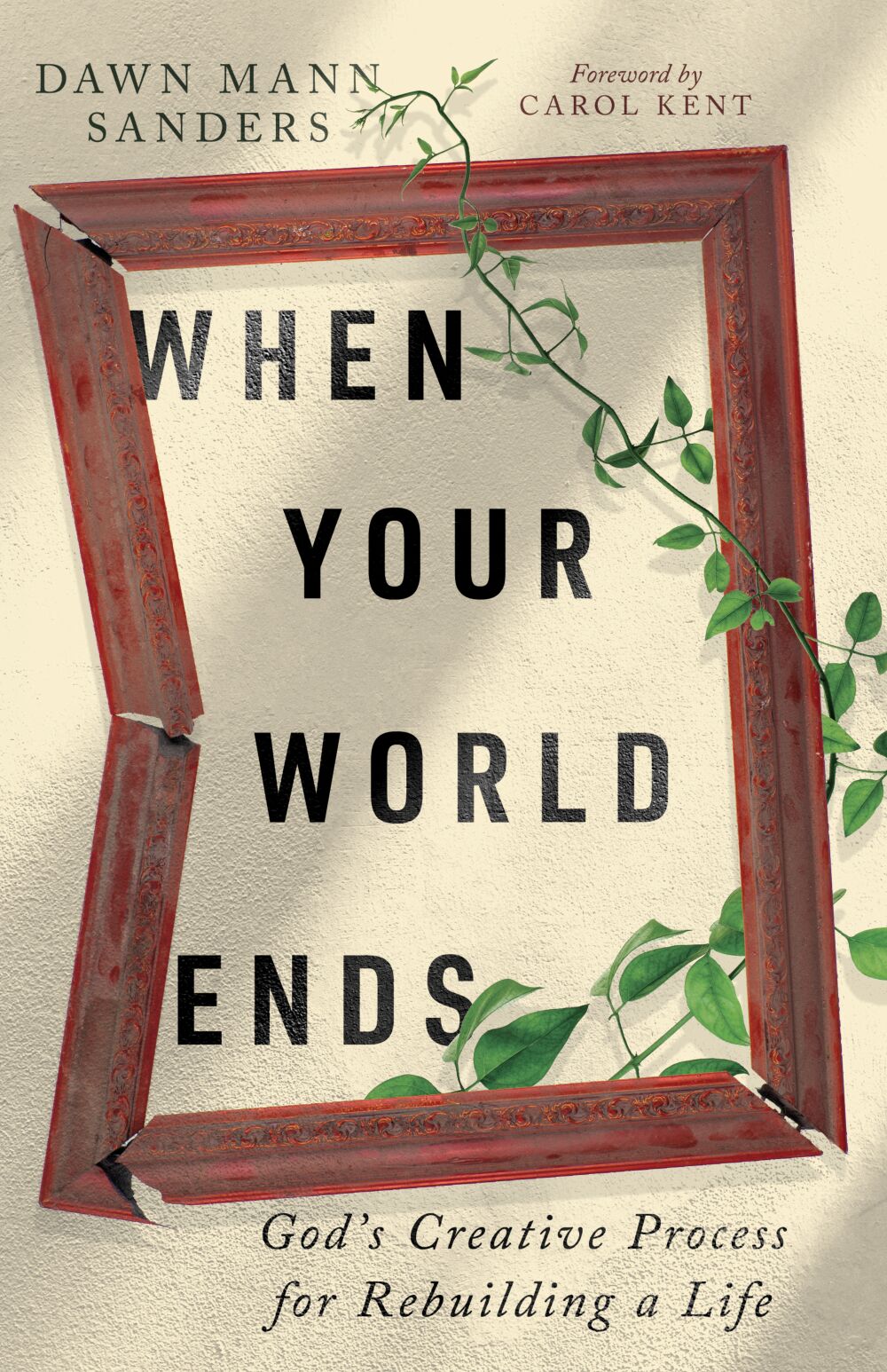How to Respond When Life Happens Part 9
“Let me tell you what your mother did today,” began my sister.
“Oh no, she’s my mother today?” I replied.
“Yes, today, she’s your mother.”
The above dialogue has begun many a conversation amongst the siblings in my family. The offender changes. Sometimes, it’s a parent, but it could be our brother or any other shared member of our family. As often—and as easily—as we say “our” mother or just call our mother “Mama,” we also can just as often and easily say “your” depending on what transpired preceding the current conversation.
This momentary disowning was very much a family affair. We came by it honestly. It was temporary and only done in the family.
Now, before you call us out for momentarily disowning our family members. We got this behavior from our parents. It was a common occurrence for my mother to tell my father about “his” son or daughter after we had done something earlier that left her momentarily not wanting to associate with us. The same was also true of my father.
You see, this momentary disowning was very much a family affair. We came by it honestly. More importantly, it was temporary and only done in the family. To anyone outside the family, our family members are always our family members.
Part 9 of How to Respond When Life Happens
Our deep dive into the book of Ruth is finishing up the first verse with the word “land.” In this context, the land was a certain people’s territory. That is the people of Israel’s territory—the Promised Land.
Now it came to pass, in the days when the judges ruled, that there was a famine in the land.
~ Ruth 1:1
God gave the land to the children of Israel. When God gave it to them, He invited them to join Him in its ownership—to take possession of the land. In other words, He entrusted it to them. When He entrusted it to them, God gave them the responsibility for the land. At which point, the land came under Israel’s control, conservation, and care.
It’s God’s custom to invite us to join Him in owning the land by entrusting each of us with some of it.
This wasn’t the first time God did this. God entrusted the whole world to humanity and the Garden of Eden to Adam and Eve. Thus, this is God’s pattern. It’s God’s custom to invite us to join Him in owning the land by entrusting each of us with some of it—areas, both physical and spiritual, He is placing under our control, conservation, and care.
Needless to say, understanding what that means is constructive when creating a new life. Consequently, in today’s post, we’re looking at what it means for the land to be under our control, conservation, and care. I hope it blesses you.
The Land Under Israel’s Control
In America, all citizens have the opportunity, privilege, and duty to control the land through engaging in and with the government. As Abraham Lincoln declared, ours is a government “of the people, by the people, for the people”. In other words, our citizens elect our rulers from amongst our citizens. A citizen is an inhabitant of a town, city, state, country, or other geopolitical entity who is a legally recognized subject of the same geopolitical entity they inhabit. That means our elected officials are subject to the same laws we are.
This biblical principal is clearly stated in Deuteronomy 1:13:
Choose wise, understanding, and knowledgeable men from among your tribes, and I will make them heads over you.
God, our ultimate ruler, delegates the responsibility of caring for, conserving, and controlling our country to us by charging each of us with choosing or electing from our own people those He’ll make heads over us (Romans 13:1-2).
Let every soul be subject to the governing authorities. For there is no authority except from God, and the authorities that exist are appointed by God. Therefore whoever resists the authority resists the ordinance of God, and those who resist will bring judgment on themselves.
~ Romans 13:1-2
In Deuteronomy 1:13, I see two responsibilities:
1. Being a Leader
We’re all called to be leaders. First, we lead ourselves. Secondly, we lead in our families, churches, places of business, and communities. Since God calls all of us to be leaders, we should all be open to taking leadership positions. Thus, when He presents you with a leadership position, you’ll be ready. It might even be a good idea to get some training. Again, so you’ll be ready.
Though we’re all called to be leaders, we all won’t be called to an elected position in our community. However, on the other hand, some of us will. So, again, I encourage you to be open to leading in whatever roles God may have for you, including becoming an elected official. If God is leading you, He’s got you. You can move forward in that responsibility, trusting Him with each step.
2. Choosing a Leader
Although the first responsibility of becoming an elected official only falls to some of us, the second responsibility of choosing our leaders—or voting—falls to all of us. God charges all of us to choose our leaders, so He’s charging all of us to vote.
Don’t know who to vote for? Well, Deuteronomy 1:13 provides three qualities a person needs to qualify for our votes.
Wisdom
Biblical wisdom involves knowledge and application of that knowledge. In short, biblical wisdom is good judgement. If a candidate for an elected position doesn’t show good judgement, then s/he doesn’t qualify for your vote.
Understanding
Biblical understanding is one’s comprehension of a situation. In other words, having the ability or intellect to understand the world. Therefore, a candidate needs to demonstrate the intellectual ability to understand the world and the situations to which s/he would have to respond, especially the situations that impact the lives of her/his constituency. Now, this doesn’t mean a candidate needs to be a Rhodes scholar. S/He would need common sense though. And remember common sense just isn’t that common. I’m just sayin’.
Knowledgeable
Being knowledgeable is being well-informed. Proverbs 27:23 says, we’re to “be diligent to know the state of your flocks, And attend to your herds.” The Hebrew word translated “be diligent to know” means having an experiential knowledge of the world, especially the jurisdiction this candidate would be responsible to and for. That’s firsthand knowledge.
A good example of this is when elected officials visit disaster areas. They need to go see for themselves whenever possible. Candidates also need to campaign throughout the whole area they’re seeking to represent and not just a subset of the region.
Thus, we are to pick people who have good judgement, high intellect, and are well-informed.
And of course, they must be citizens of the town, city, state, or country for which they would govern if elected.
This may sound like a lot of work—both in regards to being and voting for leaders. And it is, but “to whom much is given, from him much will be required; and to whom much has been committed, of him they will ask the more” (Luke 12:48).
The Land Under Israel’s Conservation
Conservation is the protection, preservation, and restoration of the land:
Israel’s Protection
When I think of protecting someone or something, meaning to keep safe from harm, I think of fighting. Ukraine, an ally of the United States, is fighting right now to protect its land. Ukraine is fighting to protect its boundaries and its people from the harm of invading forces.
In the days when the judges ruled, the setting of the opening of the book of Ruth, Israel was fighting to possess the land. Enemies had settled in the land during their captivity, so Israel had to fight to get it back. This is the case when we’re creating our new lives. The enemy is trying to take our land and we have to fight to keep it—physically and spiritually.
Israel’s Preservation
Preservation is “the act of maintaining or keeping something in its original or existing state.” The word “keep” resonates with me because Adam was placed in the Garden of Eden to tend and “keep” it (Genesis 2:15). In English, “keep” means to “maintain possession.” That sounds like protection, but the word translated “keep” in Genesis 2:15 had a spiritual aspect, which was to keep the Lord’s commands.
In this way, part of preserving the land in its original state is maintaining our relationships with the Lord by keeping His commands. Furthermore, in Leviticus 26:16, 19-20, God says He sends famines in response to our rampant disobedience. Therefore, preserving the land by maintaining our relationships with the Lord, preserve us physically through sustenance as well as spiritually through our relationship with God.
I also will do this to you: I will even appoint terror over you, wasting disease and fever which shall consume the eyes and cause sorrow of heart. And you shall sow your seed in vain, for your enemies shall eat it. … I will break the pride of your power; I will make your heavens like iron and your earth like bronze. And your strength shall be spent in vain; for your land shall not yield its produce, nor shall the trees of the land yield their fruit.
~ Leviticus 26:16, 19-20
More than anything, the enemy wants to damage our relationships with God, so part of what we are fighting for and protecting when creating our new lives is the preservation of our connection to Him.
Israel’s Restoration
Restoration is returning something or someone to her/his/its previous owner or state. So, preserving is maintaining. But when that fails, we move to restoration.
When Israel re-entered the Promised Land after their captivity, they were reclaiming their property—the land God had given them. Creating our new lives is our reclamation of our property—the land God has given us. We’ll have to fight to get it back and fight to keep it. It’s a lot of fighting, but the battle isn’t ours, but God’s. He will give us the victory.
The Land Under Israel’s Care
Care is applying serious attention, consideration, and concern to someone or something. This takes me to the latter part of Proverbs 27:23a, specifically attending to our herds. The Hebrew word translated “attend” here means “to set your heart”—your inner man, which includes your heart, mind, and will—on the land and its inhabitants.
To the Chief Musician. A Psalm of David. The heavens declare the glory of God; And the firmament shows His handiwork. Day unto day utters speech, And night unto night reveals knowledge. There is no speech nor language Where their voice is not heard. Their line has gone out through all the earth, And their words to the end of the world.
~ Psalm 4:1-4a
Everyone who is called by My name, Whom I have created for My glory; I have formed him, yes, I have made him."
~ Isaiah 43:7
So, caring for the land means it’s on your heart and mind. You think and feel about the land—its welfare and that of its inhabitants—regularly, if not all the time. When something or someone is on your heart and mind, you make time for her/him/it. You don’t ignore or neglect people and things on your heart and mind. They are a priority. As part of creating our lives, God is calling us to make the land—our communities and our assignments—a priority.
Prioritize people and things on your heart and mind. Share on XOnce again, this takes work. Controlling the land by engaging in the government; conserving the land by protecting, preserving, and restoring, and caring for the land by making it a priority takes work. Remember, God placed Adam in the garden to tend and keep it. Tending and keeping the garden was Adam’s job. The land was his assignment. Today, it’s ours. Because of Adam’s sin, our jobs feel like work, but it’s work worth doing.
Until next time…
Agape—loving and loved by Jesus,
Dawn
The “How to Respond When Life Happens” Series:
- Part 1 – How to Respond When Life Happens
- Part 2 – The Freedom to Do You
- Part 3 – The Purpose of Chaos
- Part 4 – The Difference Between Felt Needs and Real Needs
- Part 5 – Who’s Ruling You? An Article about Submission
- Part 6 – Famines in the Bible
- Part 7 – The Differences Between Famines, Fasts and Feasts
- Part 8 – Famine in the Community
- Part 9 – The Meaning of the Land as Israel’s Possession
- Part 10 – What’s Important about Naomi’s Opening Situation in the Book of Ruth?
- Part 11 – Three Locations in the Book of Ruth
- Part 12 – Traveling in the Book of Ruth vs. Now
- Part 13 – Naomi’s Family’s Names in the Book of Ruth







